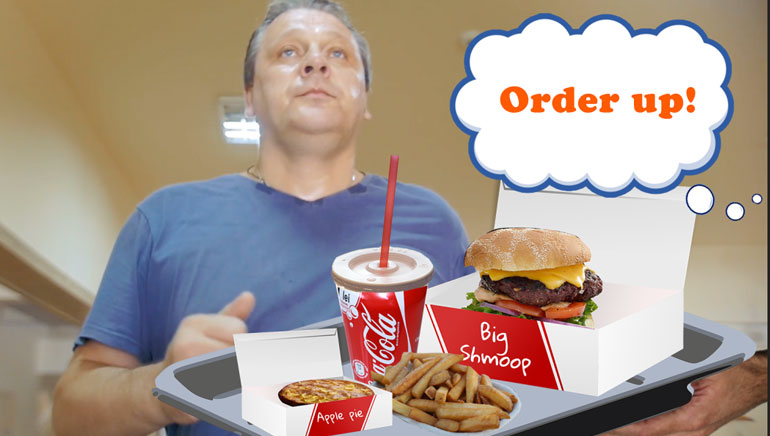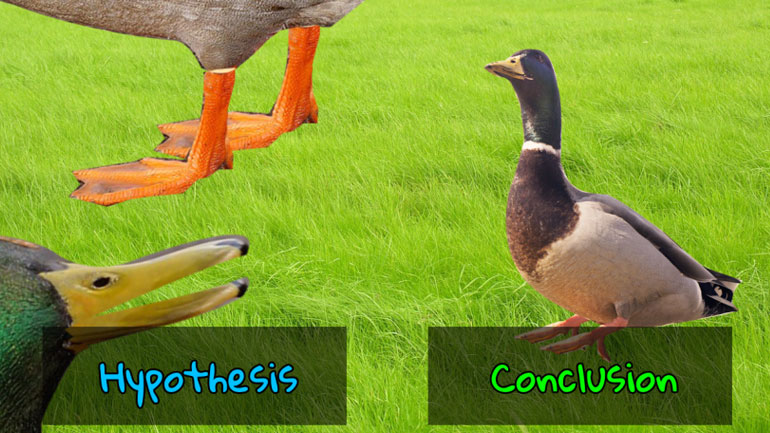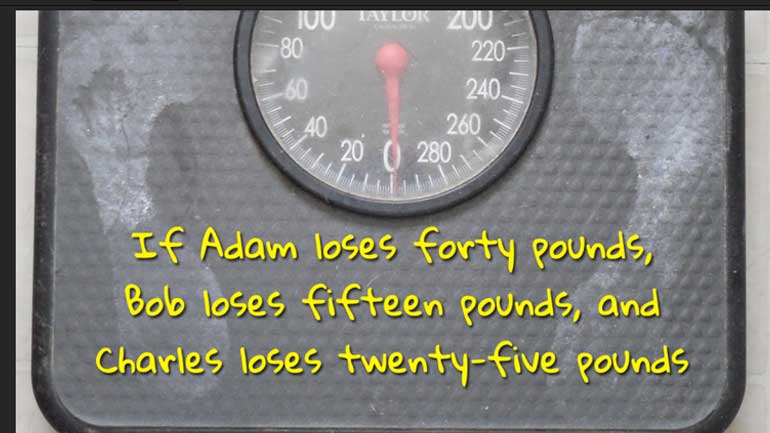ShmoopTube
Where Monty Python meets your 10th grade teacher.
Search Thousands of Shmoop Videos
Prove geometric theorems Videos 4 videos
Formal proofs present the oh-so-mathematical evidence in two columns: one for the statement they are claiming is true, and the other for the reason...
Indirect proofs (or proofs by contradiction) prove their conclusion by showing that the opposite cannot be true. You can use this in math and in ar...
If you already know what a conditional statement is, then you're smarter than you look. And boy do you look smart.
CAHSEE Math 6.1 Mathematical Reasoning 181 Views
Share It!
Description:
Mathematical Reasoning Drill 6, Problem 1. The mathematical operation needed to figure out the amount of carpeting in square feet that Sheila can afford is the same one used in calculating which of the following?
Transcript
- 00:03
Here’s a shmoopy question for you…
- 00:06
The carpet with the Hello Kitty pattern costs $4 per square foot. Sheila has $1,300 to spend on carpeting.
- 00:14
She’d better act quickly before her husband gets home and nixes the idea.
- 00:18
The mathematical operation needed to figure out the amount of carpeting…in square feet…
- 00:23
that Sheila can afford is the same one used in calculating which of the following?
Full Transcript
- 00:29
Here are the potential answers…
- 00:35
So… what is this question asking?
- 00:36
It's not asking us to solve for a specific number solution.
- 00:40
No, this problem is asking us to think about HOW we would solve this problem and apply
- 00:45
the same thought process to similar situations.
- 00:48
Let's first figure out what mathematical operation
- 00:51
we would use to figure out the amount of carpeting Sheila can afford.
- 00:55
We're given how much she can spend, and how much each square foot of carpet costs.
- 01:00
To find out how much carpeting she can afford, we can just divide 1300, the amount she can
- 01:06
spend, by the cost per square foot of carpeting, $4.
- 01:10
So our mathematical operation is DIVISION. It's a bit tedious, but to see what operation
- 01:15
needs to be used for each answer choice, we have to take a look at every single one.
- 01:19
Don't worry, there are only four of them. You’ll be able to run outside and play soon enough.
- 01:23
Alright. Choice A.
- 01:25
Choice A looks at total miles driven given speed and time.
- 01:28
Remember distance equals rate TIMES time? Emphasis on the TIMES.
- 01:34
Sounds like multiplication, not division.
- 01:37
Moving onto choice B.
- 01:38
We're looking at total cost given price per gallon and number of gallons.
- 01:42
Price per gallon times number of gallons will give us total cost...
- 01:46
so looks like multiplication again.
- 01:49
Choice C asks for the surface area given number of cans of paint and amount of coverage area
- 01:54
per can of paint...the two givens will be multiplied together to get surface area...
- 02:00
so multiplication again.
- 02:02
We're left with answer choice D...which is probably the right answer...but just to be sure...
- 02:07
To find the number of cans of paint needed to cover a wall, it makes sense that we'll
- 02:10
have to DIVIDE the area of the wall by how much area each can of paint will cover.
- 02:16
Looks like our answer is D.
- 02:18
As in, “Don’t worry… Sheila’s husband got his revenge.”
Related Videos
CAHSEE Math: Algebra and Functions Drill 5, Problem 3. Solve the equation.
If you already know what a conditional statement is, then you're smarter than you look. And boy do you look smart.
Indirect proofs (or proofs by contradiction) prove their conclusion by showing that the opposite cannot be true. You can use this in math and in ar...
Formal proofs present the oh-so-mathematical evidence in two columns: one for the statement they are claiming is true, and the other for the reason...





